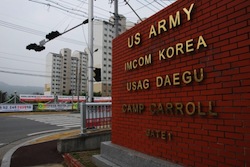Understanding Your Benefits under the Defense Base Act

Injured employees qualifying under the Defense Base Act are entitled to certain workers' compensation benefits. The types of benefits provided to injured employees are disability and medical benefits. Additionally, if the employee is unfortunately killed or later dies as a result of complications from injuries sustained, the employee's dependent family members are entitled to death benefits. Dependent family members are typically the deceased employee's spouse and any children still living at home. This includes children that are away from home but studying for an undergraduate degree at college. Dependent family members may also include parents, siblings, etc. living at the deceased employee's home and dependent on the deceased employee for support.
Disability benefits relate to the employee's injuries. Injuries may be either partial or total and either temporary or permanent. Thus, an employee's injuries may be a combination of either temporary partial or temporary total, or permanent partial or permanent total. An example of a partial injury would be the employee's loss of use of one of his or her hands, whereas a total injury would be the loss of use of both hands. A temporary injury is one where the employee's disability may be corrected over time through proper medical care, whereas a permanent injury can never be corrected, despite medical intervention.
An employee who is totally disabled is entitled to lost wage benefits equaling two-thirds (2/3) (that is, approximately 66%) of the employee's average weekly earnings. Regardless of the employee's regular wage amount, however, his or her weekly disability check cannot exceed $1,295.20. Depending on the facts of the case, lost wage benefits for permanent total disability may be payable to the injured employee for the rest of his or life. Such lifetime payments are subject, however, to annual adjustments (whether up or down) based on economic factors affecting the cost of living.
In cases involving the death of an employee, the death benefits to which the deceased employee's family is entitled are determined according to the number of dependent family members. If there is only one (1) dependent family member, the death benefits will be equal to fifty percent (50%) of the employee's average weekly earnings. If there are two (2) or more dependent family members, the death benefits will be equal to two-thirds (2/3) (that is, approximately 66%) of the employee's average weekly earnings. Regardless of the deceased employee's regular wage amount, however, death benefits cannot exceed $1,295.20 per week for injuries occurring after October 1, 2011. Depending on the facts of the case, death benefits may be payable to the deceased employee's family members for the rest of their lives. If there is more than one dependent family member, the death benefits will be payable until the death of the last surviving family member.
 Fort Lauderdale DBA Claim Lawyers Jo Ann Hoffman & Associates Home
Fort Lauderdale DBA Claim Lawyers Jo Ann Hoffman & Associates Home